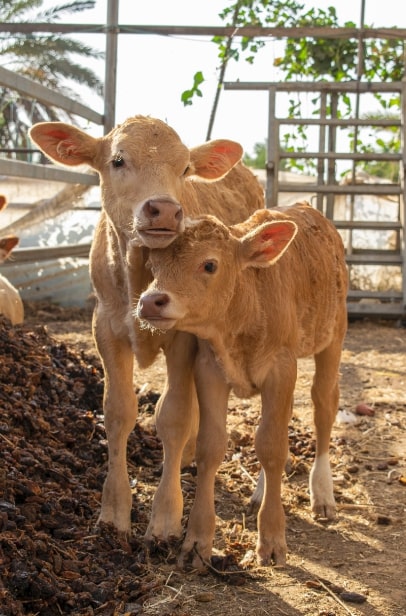One thing all cattle farmers need to think about is parasites and the impact they can have on herds. There can be a huge loss of production if you don’t address them. Worms in particular can cause big problems. You may need to use wormer to control them, reducing the risk of gut conditions, liver fluke, and lungworm.
In order to keep on top of worms though, you need to think about where the risk is highest. This will vary depending on a number of factors. We want to look at some of them here.
Young stock
Calves are born with very little resistance to worms. As a result, they have to develop it over several months. The goal is to ensure that with age they will have a stronger immunity.
There are some things you need to keep in mind here. Firstly, calves at foot can get a big boost in worm immunity. This happens because for the first 6-10 months they will be with a lactating cow. They will therefore get some immunity from the dam when they consume the milk. On top of this, these calves are not as reliant on the pasture to meet their nutrition needs. That means the intake of larvae can be lower.
Unfortunately not all calves are raised at foot. Some may get no or limited access to lactating adult cows. This is particularly common with dairy cattle. As a result, they miss out on the immunity from the milk. If the calves are solely reliant on pasture they can have higher and longer exposure to worms. Wormer may be necessary to help them.
Adult cows
Generally adult cows will be able to maintain a strong immunity to worms as long as you keep them in good body condition. There are some important things to think about though, including the stocking density, nutritional condition, and condition of the pastures.
There can also be a higher risk of worms in cows at some points during pregnancy and lactation. This generally happens because they are unable to consume enough feed to meet their requirements.
It is important to note that some cows are also genetically more susceptible. You can find a small number of cows in every herd that have the genetic disposition.
Bulls
Generally bulls and unmarked bull calves have a higher level of circulating testosterone. They put a lot more energy into growth so their immune system may not have the full capacity. It can mean a higher burden for worms and clinical signs of infection can be worse than other classes of cattle.
Ask us about wormer
At JS Hubbuck Ltd we know that cattle farmers have a lot to deal with. Worms can be a big issue and it is important to understand the risks to different animals, including adult cows, calves, and bulls.
You can rely on us if you need high quality wormer products. We can advise you and provide recommendations. Simply contact us to ask.

